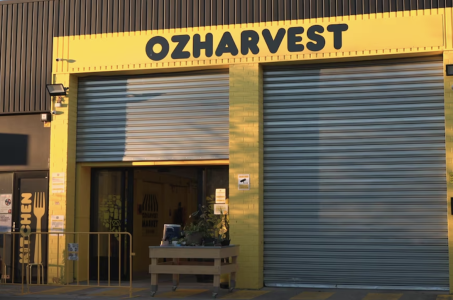OzHarvest says more people seeking food relief amid cost-of-living pressures
- Replies 0
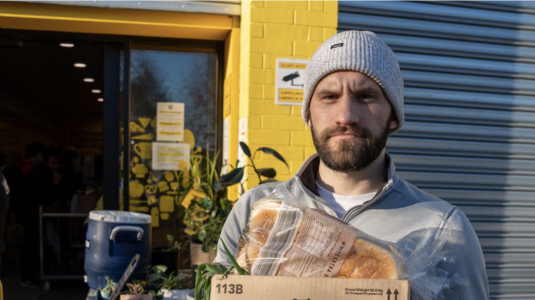
Jay Jubb says he is struggling to make ends meet amid the rising cost of living. (ABC News: Guido Salazar)
Tammy-Lee Kearvell recently became homeless and has been struggling to get by ever since.
She is currently couch surfing with people who have been able to help her out, but said it was a constant challenge to keep going.
"My puppy had puppies, and because of that I was evicted," she said.
Ms Kearvell said her puppies were then stolen by someone who wanted to sell them.
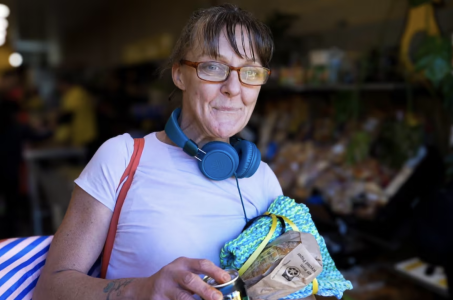
Tammy-Lee Kearvell says knowing she has some food to get her through the week is helping her move forward in challenging circumstances. (ABC News)
She said it had been a terrible time for her mental health.
"[It has been] heartbreaking. Heartbreaking. I don't even know how I'm surviving, really. I'm just pushing forward," she said.
But she said having access to food through OzHarvest's free supermarket was making a world of difference.
"It pulls you through to the other side," she said.
"At the end of the day, just a good welcoming smile and some fresh food like just even the hope of, you know, a giggle or laugh or a joke, that is barely enough, but it's still more than nothing."
Tammy is one of many customers lining up at the supermarket to access food that would otherwise have gone to waste.
A year of free meals
A year on from opening its first free supermarket in Adelaide, the food charity said demand was greater than ever.OzHarvest's latest data from a survey of 874 charities across the country found 77 per cent reported an increase in demand in the past year, with 31 per cent of recipients seeking help for the first time.
Customers of the OzHarvest supermarket are from a range of backgrounds — from students, families working multiple jobs to try to put food on the table, workers struggling to make ends meet, people experiencing homelessness, those on social benefits as well as people facing other personal hardships.
In its first 12 months, OzHarvest said it had provided more than 340,000 meals and welcomed 24,000 customers — saving tonnes of food otherwise destined for landfill.
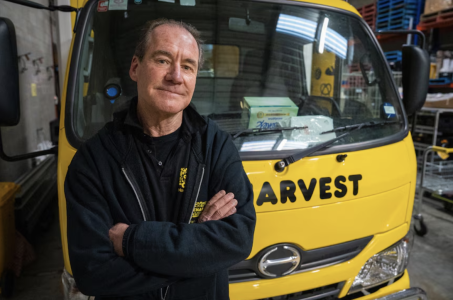
Damian Scanlon says OzHarvest could save "so much more food" with more resources. (ABC News: Guido Salazar)
But OzHarvest's SA state manager, Damian Scanlon, said that was just the tip of the iceberg in terms of viable food which could be given a second chance to those who need it most.
"Sadly, in Australia, we waste over 7 million tonnes of food going into landfill, 70 per cent of which is totally edible," he said.
"We could pick up so much more food, but we only have the capacity of five vehicles."
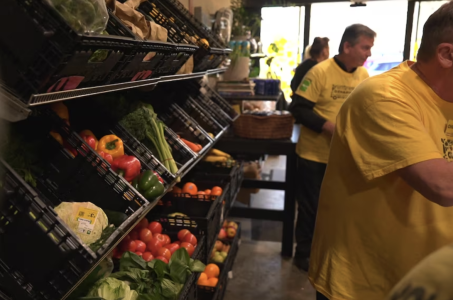
The market is frequented by about 200 guests per day seeking food relief from the organisation. (ABC News)
Food waste, is of course, a multi-faceted issue.
The United Nations Environment Program said up to 10 per cent of global greenhouse gases came from wasted food which produced methane when it rotted in landfill.
Beyond the environmental impact, it is also a productivity issue.
OzHarvest said one third of all food produced was lost or wasted — costing the global economy about $940 billion a year.
"That includes all the inputs, which is energy, labour, water. They're gone," Mr Scanlon said.
He said it was particularly shocking when considering just how many people were struggling to access enough food.
"We're averaging, generally speaking, about 200 guests a day, so we provide them with about probably 7 to 8 kilos of food that they can take home," he said.
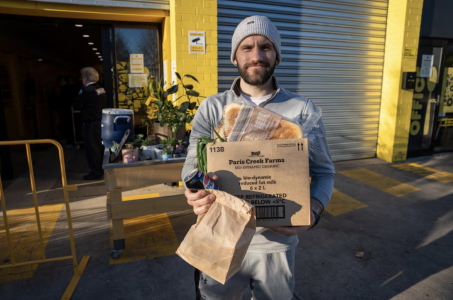
Jay Jubb works part-time and is a full-time student, and says he has come to rely on the free grocery service. (ABC News: Guido Salazar)
Students struggling to get by
Jay Jubb works part-time and is a full-time student, and said he had also come to rely on the service."I honestly didn't really want to do it because I feel like it's really for people that are really in need," he said.
"But then, you know, fast forward a little bit and the prices just keep going up and up and up, and you don't see any relief, and it's sort of like, well, now I'm kind of forced to do this and now I really rely on them actually, because things are that bad."
He said he recently moved to a different area to try to save some money on rent, and was hoping cost-of-living pressures would begin to ease soon.
"There's definitely a stigma; people like to think that you're not trying hard enough or you're just lazy or a layabout and you just need to pull yourself up by the bootstraps and try harder, and it will work out for you, which is just not the case," he said.
"I myself am struggling and I see a lot of people around me that are struggling — the line has grown pretty much doubled in the last year.
"It's everyday people like me and … university students or someone that's living pay cheque to pay cheque, which is really kind of sad to be honest."
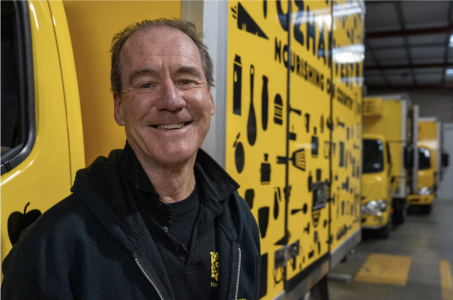
Damian Scanlon says he wants to see systemic change to help reduce food waste and improve access to food for those who need it. (ABC News: Guido Salazar)
A continuing hope
Damian Scanlon said the organisation would continue to support as many people and charities as it could."We try to do everything we can with dignity," he said.
"We have a social worker on site to support them because we know that food insecurity is not an isolated matter.
"It's often tied up with lots of other areas of difficulties like drug and alcohol, financial difficulties, domestic violence."
But he said there was no sign of demand easing.
"I wish we didn't have to have a market. That's what I wish," Mr Scanlon said.
"I hope in the year to come that yes, there's enough food out here for us to provide relief, but I also hope that we can get better systemically."
Written by: Olivia Mason, ABC News.

